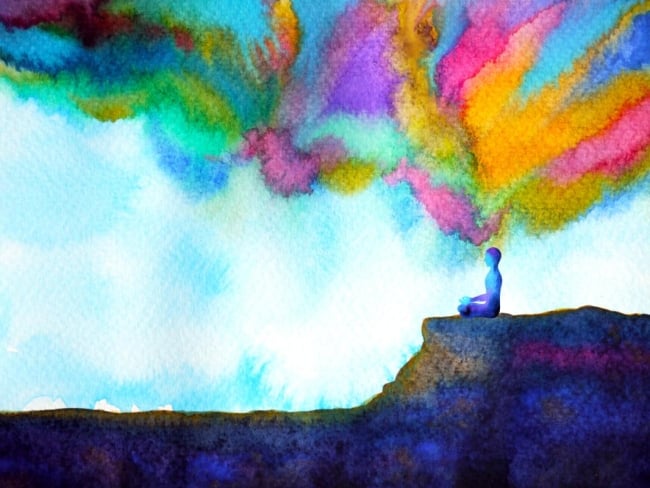You have /5 articles left.
Sign up for a free account or log in.

Benjavisa/istock/getty images plus
Students must often take capstone courses for their majors that are designed for them to review theories, synthesize and reflect on prior learning, and prepare for their careers by improving their résumés and interviewing skills. At Seton Hill University, many of our majors have such capstones of one to three credits, yet in 2010, we designed a liberal arts capstone to complement those major capstones.
The course is called Senior Integrative Seminar, and all students are required to take it. As we describe it on our website, the seminar is “a cross-disciplinary experience in which students evaluate the strengths and limitations of their educational experience … and examine their personal value systems and develop an understanding of how they might integrate their gifts in their personal and professional lives.”
You might be asking: Isn’t a liberal arts capstone redundant? But we’ve found that not to be the case at all. Rather, Senior Integrative Seminar has proved to be exceptionally useful for students launching into careers or grad school.
In a major capstone, students are often in a cohort of students with whom they have shared many courses. Increasingly in higher education, students can spend almost all their time at their college or university in the bubble of their discipline. In contrast, students in a liberal arts capstone engage in conversations with others from various majors whom they would otherwise have never met or talked with. We know that interaction across identities, cultures and disciplines promotes creativity and strengthens the bottom line of organizations. A liberal arts capstone is the launching pad for such interactions.
We’ve found that the liberal arts capstone offers numerous other benefits. For instance, it can:
Encourage students to examine their personal visions. Students are often assumed to have done this before selecting a major, but, in fact, many have not been asked to think seriously about it before. Likewise, in most majors, students haven’t been asked to consider the concept of vocational calling. A surprising number admit to seeing their discipline in a new light when asked to reflect on vocation, and occasionally students are awakened to a calling that they had not previously considered.
Discovering this before graduating can change the trajectory of a student’s life. Students in my sections (and most other sections) write a reflection paper about their projects and also a final reflection in their digital portfolio. I’ve captured quotes from these papers—for example, one student wrote, “As I read and we talked in class about the idea of calling, I realized that my goal of becoming a lawyer is not my calling; it is what my father drilled into me that I have to do … Doing this assignment made me realize that while I still might do law, I can also look for opportunities to do my passion: acting!”
Provide better career preparation. In their major capstones, students can work on polishing résumés and practicing interviewing in ways that can help prepare them to compete in a specific career space. But students in some disciplines may be competing for careers outside that preparation. Additionally, we find that, despite career preparation in the major, most students still need work on their résumés, don’t know how to write a good cover letter and want to improve their interviewing skills. We use the senior seminar to help them do that and develop other important career-search competencies, such as preparing an elevator speech and presenting themselves professionally.
Ensure students have mastered the institution’s key learning objectives. Our students demonstrate that in their liberal arts capstone through a digital portfolio, using apps such as Google Sites, Wix or Weebly, in which they provide evidence of various forms of mastery. Students who have never created a website often report that aspect of the Senior Integrative Seminar taps their creativity and enhances their marketable skills. In the words of a student, “By completing a paper in which I had to state exactly how we met that skill and objective, it showed me just how much I have actually been able to do since starting at Seton Hill … It made me feel really good to be able to see how far I have come. Looking in particular at my writing, I can tell how much better I have gotten at professional-style writing.”
Explore and present their cultural identities. In our experience, a liberal arts capstone can help deepen students’ awareness of diversity, equity, inclusion and belonging. While that should happen in every major, taking a course with students from various majors can be especially enlightening. As one student told us, “We have learned about the importance of a liberal arts education and how we must learn from those who have different perspectives than we do … I have been pushed out of my comfort zone in so many ways in Senior Seminar, from simply talking to those outside of my major to actually having to open up and discuss difficult topics with individuals that have incredibly different values than I do.”
Encourage the idea of giving back through civic and political engagement. In every section of the course, students also participate in a social justice project of their own design. They engage with organizations in the community or globally to design projects that touch lives in significant ways, whether in a Head Start class or through promoting awareness of human trafficking
Improve student financial literacy. Students can take an isolated course on financial literacy, but it is usually an elective, and most students end up graduating without much awareness of the power of inflation, the value of investing early for retirement, how to pay back student loans and manage loan forgiveness, and when they will need what type of life insurance. One student wrote, “I figured I would graduate without knowing anything about saving and life insurance and retirement. How wrong I was! Thanks to this course, I now have a foundation for the future, and know where to find information about all things financial.”
Finally, of course, a liberal arts capstone course is designed to give students a keen sense of the value of a liberal arts education. They learn that liberal arts is not some mysterious concept or just an approach that broadens them. They discover that it connects their learning in a visual, ethical, spiritual and practical way, and prepares them to be lifelong learners.
A student expressed this well: “I found it so beneficial to my liberal arts knowledge to learn about the ways in which all of our disciplines play off one other in the professional world. It is important in liberal arts education to shine more light on how very different paths in life can meet at the same point somewhere down the line.”
Students sometimes think that a liberal arts curriculum is forced on them to the detriment of more study in their majors. However, in senior seminar, students are required to read about liberal education, argue for and against it, and decide if they would recommend a liberal arts education to a student considering college. Through this assignment, they develop a deeper understanding of the liberal arts and how it has prepared them for their careers.
In short, we’ve found that adding a senior capstone course can be life-changing for students and will more than complement what they learn in their major disciplines. We urge other colleges and universities to consider it.




